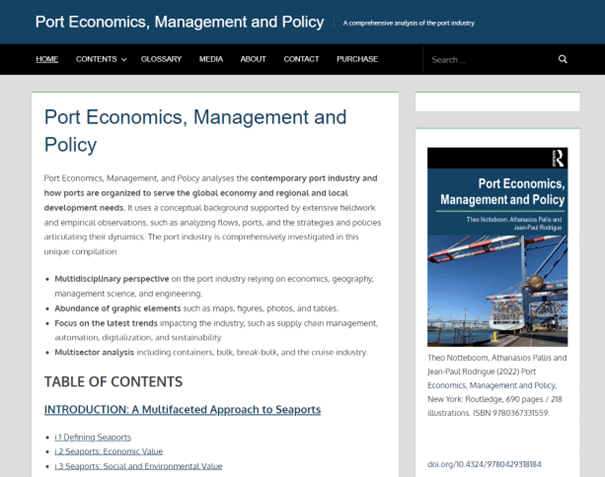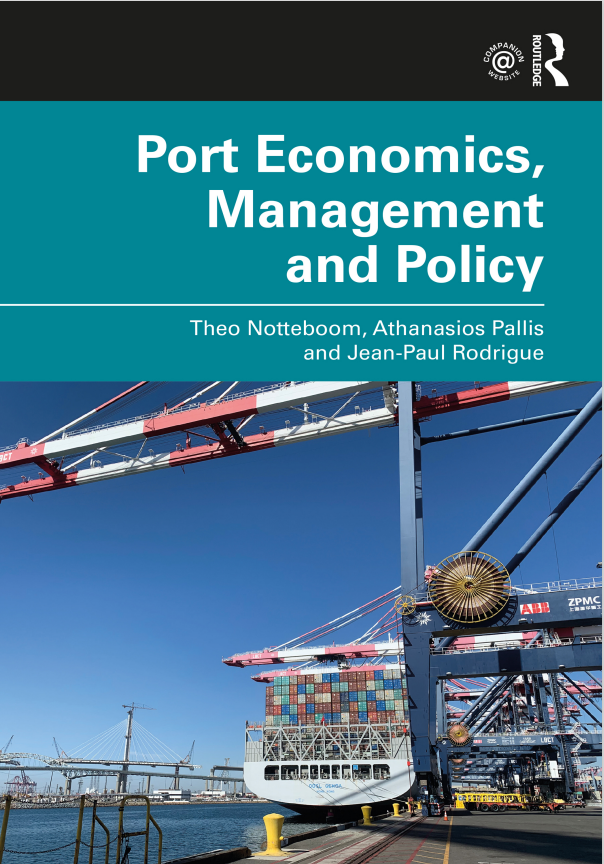Port Economics, Management and Policy provides a comprehensive analysis of the contemporary port industry, showing how ports are organized to serve the global economy and support regional and local development
Structured in eight sections plus an introduction and epilog, this textbook examines a wide range of seaport topics, covering maritime shipping and international trade, port terminals, port governance, port competition, port policy and much more.
Key features of the book include:
- Multidisciplinary perspective, drawing on economics, geography, management science and engineering
- Multisector analysis including containers, bulk, break-bulk and the cruise industry
- Focus on the latest industry trends, such as supply chain management, automation, digitalization and sustainability
Benefitting from the authors’ extensive involvement in shaping the port sector across five continents, this text provides students and scholars with a valuable resource on ports and maritime transport systems. Practitioners and policymakers can also use this as an essential guide towards better port management and governance.
Source: Routledge
The book can be used as a textbook in universities and schools. But it can also be used by any active port professional who wants to have a broad basic knowledge of shipping and ports.
The authors also know that a printed book is outdated even before it is on the market, so they also provide permanent updates through an accompanying website.

Re-sources
Related
Circular Economy to be fully integrated in ‘Port Economics, Management and Policy’, a global leading reference handbook
A team leading scholars will examine the potential and the role of ports in circular economy implementation and the impacts…
Read moreNew book ‘Port Economics, Management and Policy’ offers comprehensive reference for port professionals
Professor Theo Notteboom recently published the book ‘Port Economics, Management and Policy’ together with Jean-Paul Rodrigue (New York) and Athanasios…
Read more

